
Expert insights on selecting the appropriate patients and dose for treatment with the lenvatinib plus pembrolizumab regimen in patients with renal cell carcinoma.

Your AI-Trained Oncology Knowledge Connection!


Expert insights on selecting the appropriate patients and dose for treatment with the lenvatinib plus pembrolizumab regimen in patients with renal cell carcinoma.
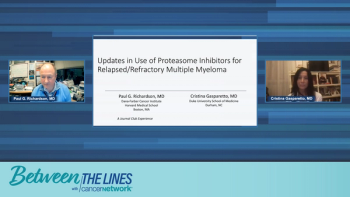
Expert perspectives on data from the TOURMALINE-MM1 trial, which tested ixazomib therapy in patients with relapsed/refractory multiple myeloma.

Experts open their discussion on RCC by reviewing the clinical scenario of a patient with favorable-risk disease who is treated with the TKI/IO regimen of lenvatinib and pembrolizumab.
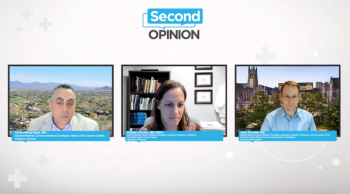
Tanios Bekaii-Saab, MD; Kristen Ciombor, MD, MSCI; and John Strickler, MD, detail key developments and needs in the gastrointestinal cancers landscape.

Laurence Albigès, MD, PhD, spotlighted 2-year follow-up data from the phase 3 CheckMate 9ER trial, which looked at nivolumab and cabozantinib in patients with previously untreated advanced or metastatic renal cell carcinoma.

Laurence Albigès, MD, PhD, speaks to how patients with treatment-naïve advanced or metastatic renal cell carcinoma can benefit from treatment with nivolumab and ipilimumab.

Yi-Bin Chen, MD, shares insight on unmet needs and the future treatment landscape for patients with chronic GVHD and steroid-refractory GVHD.

Yi-Bin Chen, MD, evaluates the safety and efficacy of ruxolitinib for second-line treatment for steroid-refractory chronic GVHD and discusses clinical implications from the REACH3 trial.

A discussion on choosing between triplet or quadruplet induction therapy for transplant-eligible newly diagnosed multiple myeloma.

An overview of the triplet and quadruplet induction treatment regimens available for patients with transplant-eligible multiple myeloma and key clinical trials studying daratumumab and isatuximab presented at ASH 2021, with emphasis on the GRIFFIN, MASTER and GMMG-HD7 studies.
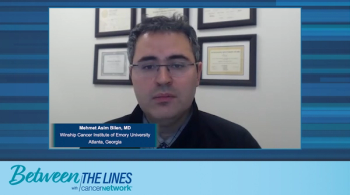
Experts discuss how data from the CLEAR trial affects the management of advanced renal cell carcinoma in their clinical practices.
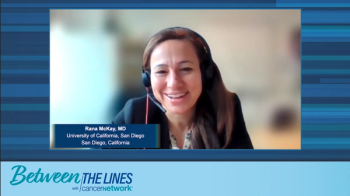
Rana McKay, MD, and Tom Powles, MBBS, MRCP, MD, highlight key data from the CLEAR trial and offer their overall opinions on the combination of lenvatinib plus pembrolizumab for the treatment of renal cell carcinoma [RCC].

Laurence Albigès, MD, PhD, shares updated key findings from the phase 3 CheckMate 214 trial.
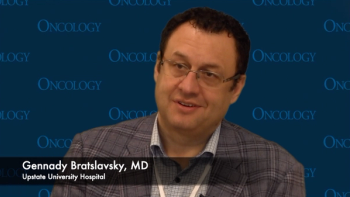
Gennady Bratslavsky, MD, spoke about the evolving field of surgery for renal cell carcinoma at the 15th Annual Interdisciplinary Prostate Cancer Congress® and Other Genitourinary Malignancies.

The importance of forming partnerships with patients and understanding their preferences for therapy when establishing treatment algorithms for patients with HER2-positive metastatic breast cancer.

Sara A. Hurvitz, MD, and Julia A. LaBarbera, NP, of UCLA, highlight the safety and efficacy profiles of newer novel treatment options available for HER2-positive breast cancer and brain metastases.
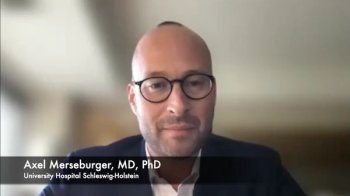
Axel Merseburger, MD, PhD, spoke about implementing the treatment combination of enzalutamide plus docetaxel/prednisone for progressive castration-resistant prostate cancer from the PRESIDE trial into the real-world.

Dr. Bobby Liaw discusses importance of setting expectations regarding common side effects and challenges patients might experiences with treatment.

A prostate cancer expert shares rationale for his preferences and choices while sequencing therapies in prostate cancer.

Laurence Albigès, MD, PhD, speaks to the patient population included in the phase 3 CheckMate 214 trial, assessing nivolumab plus ipilimumab in patients with treatment-naïve advanced or metastatic renal cell carcinoma.

Arnab Basu, MD, MPH, FACP provides an overview of RCC histologies.
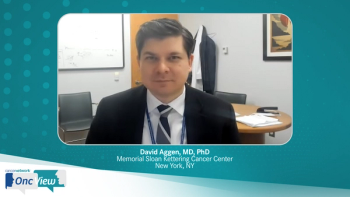
David Aggen, MD, PhD discusses trends in renal cell carcinoma (RCC) incidence.
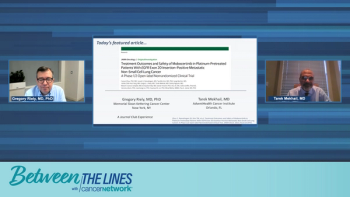
Closing out their discussion on mobocertinib data and the EXCLAIM cohort, experts share hope for the future management of the EGFR exon 20 insertion–positive mNSCLC.

A brief review of biomarker testing in metastatic non–small cell lung cancer to identify alterations such as the EGFR exon 20 insertion.
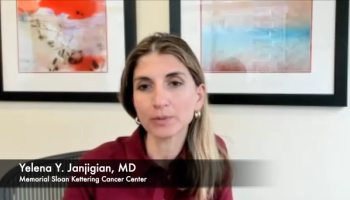
Yelena Y. Janjigian, MD, spoke about which biomarkers were most predictive for treatment of localized gastric cancer.

Shared insight on how real-world experience and data with proteasome inhibitors in multiple myeloma compare to what was seen in clinical trials.

A broad look at the historical use of proteasome inhibitor therapy in patients with multiple myeloma centered on 3 agents: bortezomib, carfilzomib, and ixazomib.
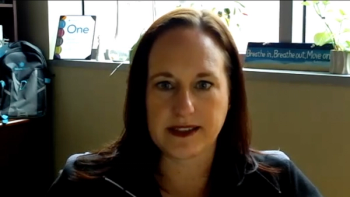
During the Association of Community Cancer Centers 48th Annual Meeting & Cancer Center Business Summit, Candice Roth, MSN, RN, CENP, spoke about electronic pathways embedded in electronic medical records.
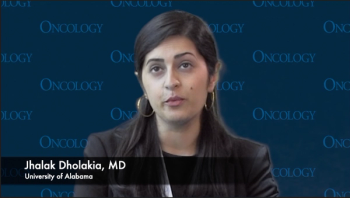
Jhalak Dholakia, MD, discusses the promising neoadjuvant combination of of carboplatin and mirvetuximab soravtansine in folate receptor α–positive advanced-stage ovarian, fallopian tube, or primary peritoneal cancer.

An expert in hematology/oncology reviews study data and results from the phase 3 REACH3 trial for steroid-refractory chronic graft-vs-host disease.